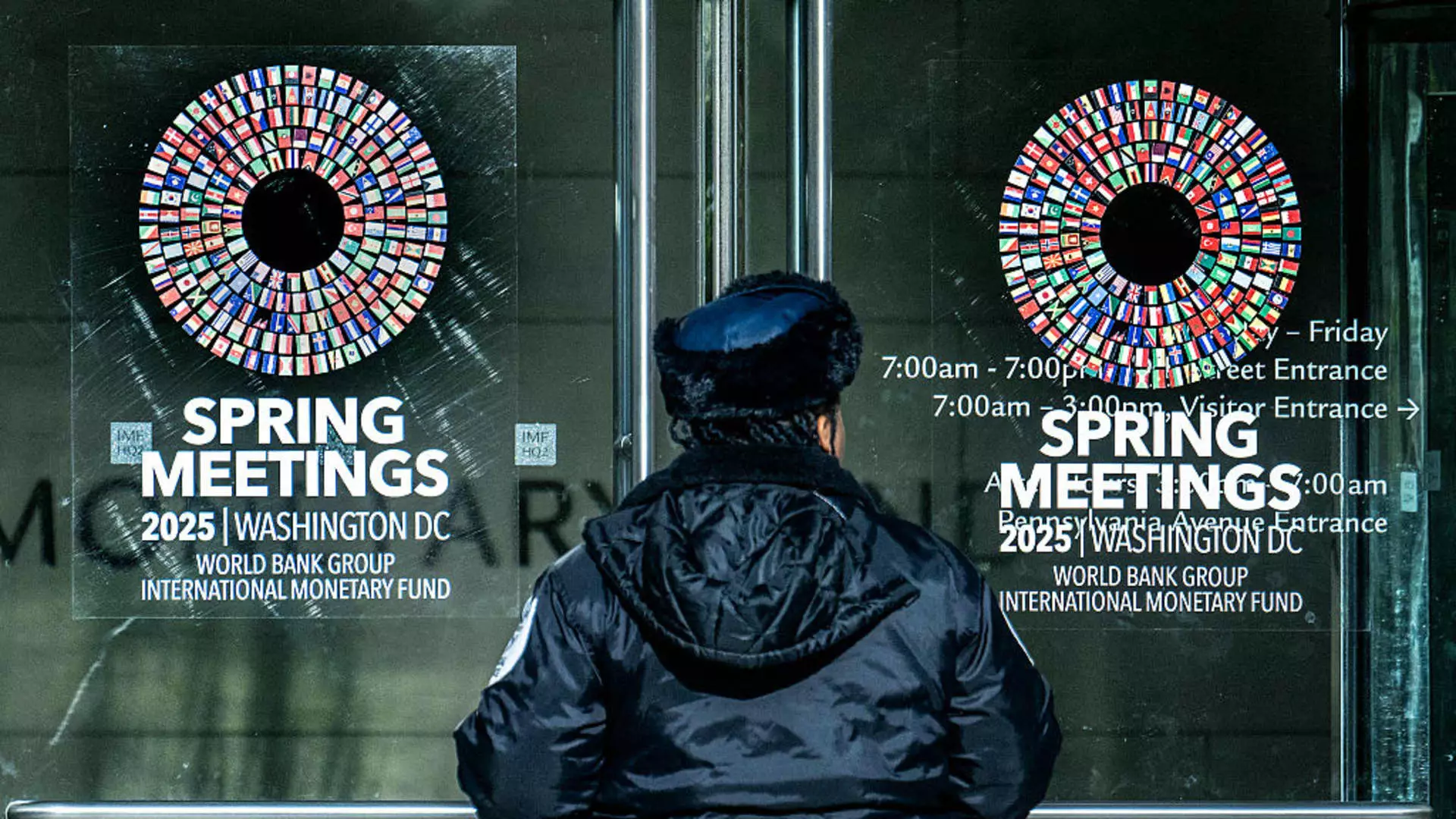The recent downgrade of growth forecasts by the International Monetary Fund (IMF) for major Asian economies is a harbinger of an impending economic crisis. With projected GDP growth slashed for economic juggernauts like China and India, the region faces a challenging landscape fraught with mounting uncertainty. China’s growth prediction has plummeted to a mere 4% for 2025, and India follows closely with a 6.2% forecast. These numbers reflect a stark departure from earlier estimates and raise alarm bells about the sustainability of growth in these countries.
The IMF’s assessment is more than just numbers; it’s an indictment of the geopolitical and economic turmoil exacerbated by trade tensions and erratic fiscal policies. It’s as if the foundations of these economies are slowly eroding under the weight of unpredictability. The coastal cities of China, once symbols of economic prowess, now suggest instability. India, riding on the aspirations of a youth-driven economy, finds itself at a crossroads. The implications of these drastic cuts extend beyond mere statistics; they represent a broader narrative of stagnation and retrenchment in Asia.
The Impact of Trade Tensions
Perhaps one of the most glaring issues is the role of trade tensions, particularly between the U.S. and China. The IMF bluntly states that tariffs implemented by the U.S. and its trading partners are “a major negative shock to growth.” It’s a harsh reality check for policymakers across the continent. Trade was meant to be a vehicle for prosperity, but it has morphed into a tool for economic warfare. The sad irony is that while countries like Japan and India attempt to adopt a conciliatory stance, hoping for negotiations and dialogue, the situation seems only to spiral further out of control.
As the U.S. levies exorbitant tariffs, reaching as high as 245% on some goods from China, it is not just merchandise being taxed; it is the very spirit of globalization and cooperation that is being undermined. Such a policy environment promotes a culture of economic isolationism rather than the interdependence that has characterized successful global markets for decades. In an age where collaboration can yield prosperity, the onslaught of tariffs only serves to diminish the chances for collective advancement.
National Policies: A Double-Edged Sword
In light of these challenges, the strategies adopted by India and Japan paint a contrasting picture. Japan’s willingness to negotiate and engage in diplomatic discussions with the U.S. speaks to a pragmatic approach; however, it also underscores a sense of desperation in the face of America’s punitive measures. Prime Minister Modi’s outreach to U.S. Vice President JD Vance reflects a similar strategy of appeasement but raises questions about the effectiveness of such maneuvers. With negotiations yielding little more than “significant progress” platitudes, one wonders whether these dialogues are merely delaying the inevitable.
At the same time, the philosophical underpinnings of these national policies signal a critical examination of leadership. Should countries simply toe the line of major powers for the sake of maintaining their economic health, or should they rebel against the status quo to forge a new path? The notion of sovereignty hangs in the balance as nations grapple with the consequences of their strategic decisions.
Global Implications: A Deteriorating Future
The downgrades from the IMF come amidst a broader trend of pessimism amongst financial institutions regarding Asia’s economic prospects. Goldman Sachs and Fitch, among others, have revised their forecasts downwards, reflecting a sense of dread that is palpable in the markets. What we are witnessing is not just economic recalibration but a potential fracturing of the global economic architecture as we know it.
The ramifications of a stagnating Asia ripple across global supply chains, affect investment flows, and stoke market volatility. A region once viewed as the engine of global growth may stand at the gateway to an era of contraction and lost opportunities. The need for a robust response that fosters collaboration, innovation, and sustainable policies has never been more critical.
As economic relations unravel, it becomes imperative for Asian nations to reassess their roles in the global marketplace. Rather than accepting diminished growth forecasts as a new norm, they should be motivated to reclaim their legacies as formidable players in an ever-evolving economic landscape. The stakes are high, and the need for effective leadership that champions equity and accountability has never been clearer.

